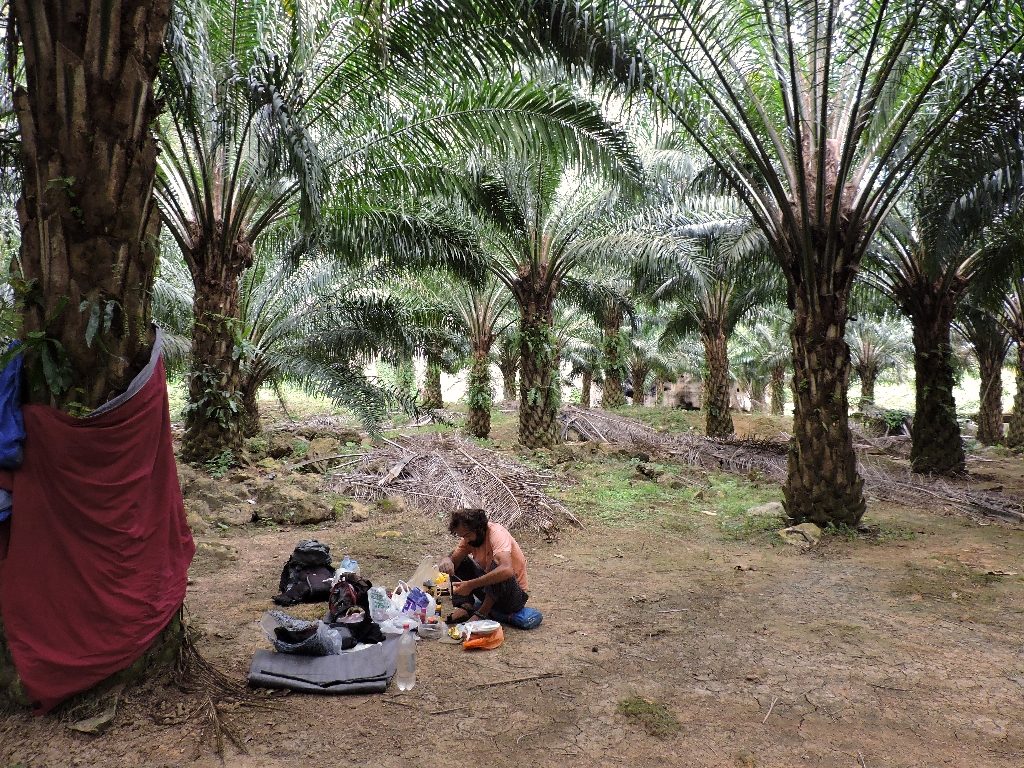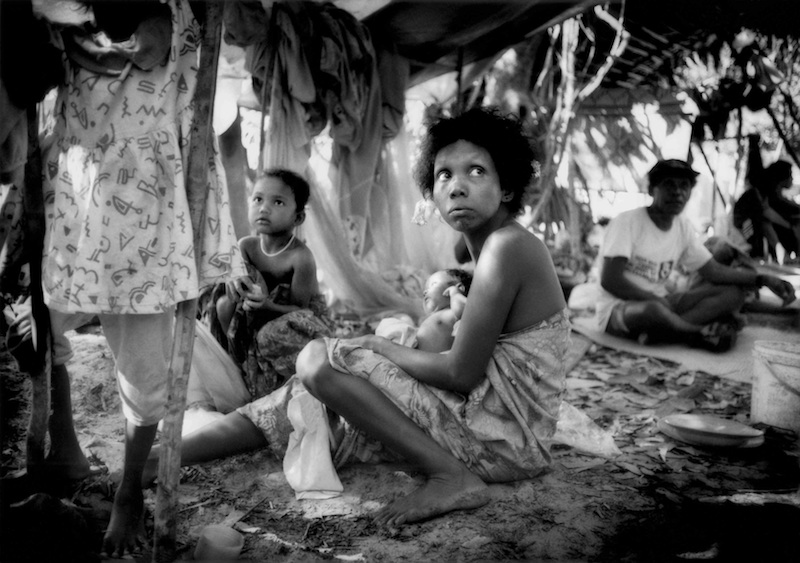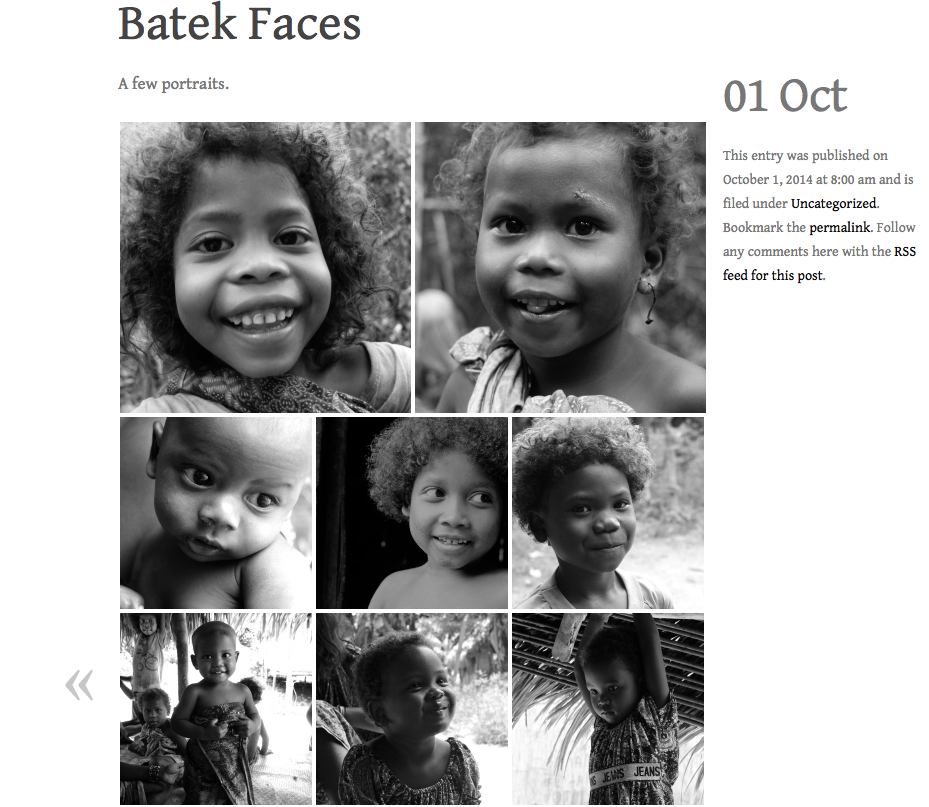T H E P E A C E F U L A N D E G A L I T A R I A N
B A T E K P E O P L E
I N T H E M A L A Y S I A N R A I N F O R E S T.
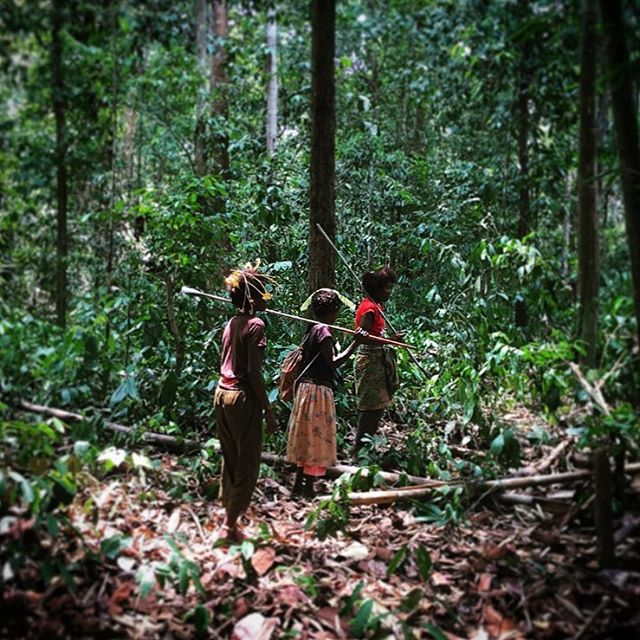
Regardless of all these biased scholars and others who are accusing us of lying, which is very insulting - these peaceful and egalitarian societies do exist. So we need to talk about it, and explain it in order to understand it!
Batek is the people that the English anthropologists Karen and Kirk Endicott visited and among wich they carried out their fieldwork in the 1970s, and is reported of in a lecture on Youtube by the anthropologist Jerome Lewis as follows:
Karen Endicott is the wife of the famous anthropologist Kirk Endicott both of them studied the group of Batek in Malaysia together in the 1970th. This was just at the time as the feminist anthropology was growing strongly, but very much taking the view that everywhere in the world women were oppressed by and subordinate to men and this was almost a dogma. Sherry Ortner and so on, proposed this as a human universal.
But Karen Endicott living with the Batek in Malaysia discovered that among them there was not this universal, as the Batek women had at least the same amount of power as men, and there is no way of really determining any inequality between the gender groups.
When she came back after having finished her field work and started to give talks to anthropologist groups in Australia where she was writing her PhD, women and other anthropologists didn´t believe her, and was telling her that she was lying or "romanticising".
Karen as a result of all this doubt and because these people were calling her a romantic or lier, wich is very insulting after many many years of hard work, left anthropology. She got fed up with it, which is outrageous - a real tragedy. She could have transformed anthropology had she persisted.
And here JL gives a report of his own upset reaction of having had to experience the similar treatment of not being believed when trying to communicate his findings in his research, just trying ones best to represent these groups as clearly and articulate as possible, and communicating something one has experienced and lived with for long periods in these places in the world, knowing for sure that one isn´t romanticising anything but just telling the truth about how it really is.
But it does exist so we need to talk about it, and explain it in order to understand it!
Anyway Karen got fed up with it and gave up. Her first paper explained this 1979 and she didn´t publish a book about it, until 2007 almost although three decades after her first paper was written 1978-9. Can you imagine - the trauma is deep and if you talk to her, you can see how upset she was by all that, all her peers just dismissing her powerful ethnography. Anyway, in this 1979 paper she writes:
“When a society has authority positions to be filled, male dominance seems to be the usual, if not the universal consequence, if of no other reason than that men would preclude female opposition by sheer rude force”
And that´s a very profound insight which people don´t really engage with. And perhaps delayed return economies delayed return systems dominate the societies of today, its all too easy to presume that everywhere must be like that, which actually is not the case.
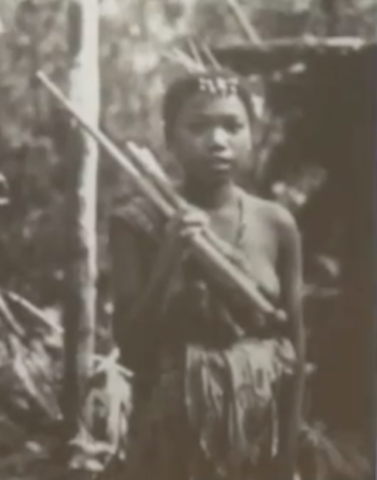
(39:00) Now we are going to look at a society in which there are t very strong egalitarian relationships; namely the people of Batek living in the rainforest in Malaysia. And this is a girl going hunting. In Africa women will hunt and they will kill, but they won´t do it by piercing, the way men do it; piercing the pig with a spear when they want to kill it. If a women try to kill she has to do it in a way that´s not causing the blood to flow. And that´s really important. By contrast this Batek girl can kill monkeys and birds with the poisoned arrows she is holding in her hand. And it does seem that in Southeast Asia the symbolism of blood hasn´t got the same structural function of organisation that it does in Africa (40: 47). But it still is there.
Blood is very powerful and there are very strict rules not mixing different types of blood and it is thought that serious problems can happen to people if you mix wrong types of blood together. It might cause terribly thunderstorms, or flooding to happen which causes the land to disappear and people can get washed away and get drowned in these thunderstorms. It is the Thunder-God Tuha who sends its down if people don't obey the proper rules for keeping blood apart. So blood remains important, but less so as in Africa. And although menstrual blood is very important, in this tabu system, it doesn't have quite the same power as in Africa. So here we have the Batek, but we have also the Akta who lives in the Philippines, where women also hunt more often, than they do in Africa, and using these processes of piercing bodies.
Whats interesting in Southeast Asia is that although they have gendered roles; men normally hunt and women normally give birth, they are not bound in the same way as in Africa to gendered bodies. You do have gendered roles but gendered bodies can more easily do each others things.
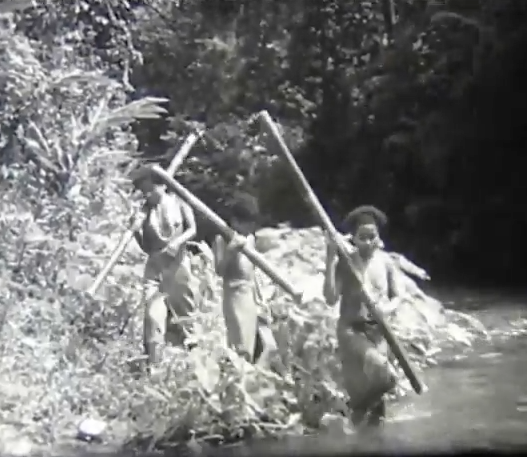
THE CHILDCARE AMONG HUNTER AND GATHERERS:
One thing thats particularly interesting in egalitarian societies is that parents don´t have authority over their children, parents cannot force their children to do anything. So for instance if a child does something that´s dangerous, or you want to stop it from doing something you cannot say: “Stop doing that, that´s dangerous!” Instead you must say: "Oh, that´s a taboo; the tiger will come and eat you if you do that again" Its always put out to the supernatural or some dangerous animal, rather than to the parent him - or herself, and that subtle difference is very important in assuring that the young children will be very much socially inculcated with a refusal and abhorrence of authority over people or ways of ordering peoples to do things (49:14)
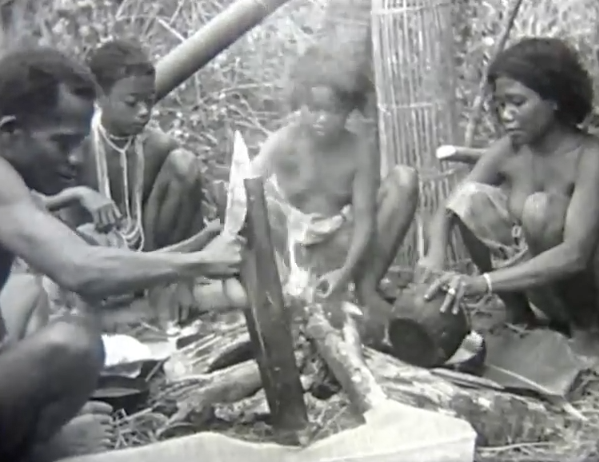
ATTITUDES AGAINST VIOLENCE
And one of the very important differences between Southeast Asia and Africa is the role that violence play in the social relations. In this Batek society violence is considered to be a form of madness. Its something that normal healthy people just don´t do, to attack someone or physically aggress them. And this non-violence is a very strong quality of these southeast hunter and gatherers. Endicott said that because no aggression is tolerated in these societies, the men hasn´t got the option of using brawn in order to dominate women. And if you think about Dukas story you see how the brawn of men can bee deployed to really impose their will on women.
(50:00)But thats´s NOT the determinating factor of gender equality, and that´s whats very interesting, when we now turn to these African examples for examples, for instance the Hadza. You can see that the have many of these structural similarities described of, how equality is achieved in these societies. The abhorence of violence is quite differently interpreted among Hadza and among Mbjendele. Violence is accepted as one way of negotiate social relationsship; the carefully control violence, but in the Mbjenfdele case, drawing blood is really out of the question, they have ways of fighting and levels of fighting, and levels in engaging in physical contact with somebody arguing and disputing which tries to manage the aggression, so that it doesn´t lead to bloodletting because that´s tekila; its taboo to cause blood to flow from another human being. So for instance the highest level of fighting is not using or machetes, which are available everywhere, but, in the case of men, they are using firewood so they will take turns, swiping each other with these huge trunks of firewoods. And firewood has to be a bit rotten to burn, so it sort of plunge and crunches a bit so that it takes away the blow. The most dangerous way of fighting that the Mbjendele have is with this green pole freshly cut sticks, and that is really dangerous because if its swung with enough strength it could crack your scull. But I have only seen that be used by women against men, when men go crazy after have been drinking too much. And the women will group together hit them with the sticks until they calm down. And its amazing how quickly people calm down when they get ? on their head.
Why this is so is an open question. JL suspects that´s got something to do with the nature of the animals, that people are hunting in these different places. So in the Hadza and Mbjendele context, where you have these really large animals - you do need to be quite fierce to kill an elephant or buffalo with a spear. But in the Batek or Akta situation, you do have wild pigs, wich do take som effort to kill, but most of their hunting is using poisoned darts killing smaller animals as monkeys and birds. The level of aggression that you will have to deploy to succeed is less. But that´s just his own speculation JL says. He doesn´t really know why it is so different.
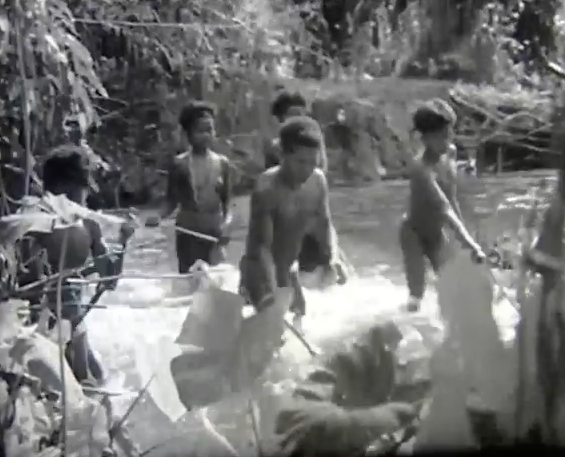
Egalitarian societies are societies in which neither sex has control over the other, or greater cultural value.
(42:28) In Africa there is a certain sense of what is appropriate for men and for women, and women and men cultivate these quite strongly. Although they will do each others things and it doesn´t cause trouble. So the title of Endicotts book, when eventually Karen was persuaded to formally public her work, is called The Headsman is a woman.
The Endicotts defines egalitarian societies as; Societies in which neither sex has control over the other, or greater cultural value.
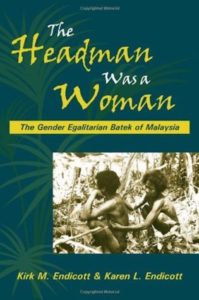 The Batek recognise men and women having different physical qualities, but they don´t evaluate the qualities as being higher or more or less important than the other. So men and women in their daily life, decide what to do, nobody is telling them you cant order someone to do this or that. So people have control over their bodies.
The Batek recognise men and women having different physical qualities, but they don´t evaluate the qualities as being higher or more or less important than the other. So men and women in their daily life, decide what to do, nobody is telling them you cant order someone to do this or that. So people have control over their bodies.
And they have an equal voice in camp affairs, so the headman in one camp was a woman, so that was entirely acceptable in the Batek Community. They are equal partners in marriage, there are no questions about the man or the woman telling the other one what to do. And actually the choice of spouses is entirely free; the couple decide themselves how they want to do it. And this is true in all these hunter and gatherer societies. And likewise, as coming together as a couple, divorce is just very straightful - you just leave, you go. And there is no expectation that you have to give any explanation. You are free to leave and nobody can force or command you.
(45:00) All economic decisions and others are made jointly by man and wife. Neither depends on the other for access to key resources on which their lives depends. And demand sharing is done simply by being around, you just have to be there and demand what you need and you will get it and its no question of noone resisting or denying you that. So noone is dependant on other persons, for access to key resources.
Moments occur in these societies where authorities can be seen but its not the authority that we are used to. What happens is that it is a consentual identification of one individual who happens to be good at something. So for example among the Batek you have certain healers who are recognised as being very effective at healing other people. In the moment of illness people will refer to that healer for guidance of the rituals needed to heal the person of illness. And an other example is elephant hunting in Congo, which is a very dangerous business and some men have more knowledge of elephant hunting than others. And at that moment when they set out for an elephant hunt, people will turn to that person and tell him to lead them, and then he will start to organise the hunt. But as soon as the mission is fulfilled all authority disappear from that person. And when the healing ceremonies is over, the shaman or whoever it is, will just sit back and become an ordinary member of society. So the role of authority is in the ephemeral moment of organising the wellbeing of the group, rather than for any benefit for any individual.
Group decisions are not based on some persuative individual making it seem like the most attractive option. But by those individuals among the Mbendjele who are able to listens to all the individual´s points of views going around the group, and then somehow reformulates them so that everybody finds themselves represented, everyone somehow finds their point of view taken into account, are choosen as "consensusbuilders". Consensus building is essentially much much more demanding than rethorical persuasion, which is just a force of logic, and logic is a prostitute you can put it to anyone for any use. but consensusbuildimng is very hard. It really requires very strong listening skills and thinking beyond the words and find that unity that makes everyone coming together.
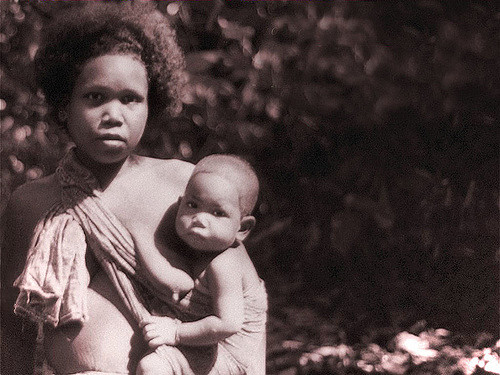
On this Batek Bulletin homepage you can find some very nice photos and reports of Batek life of today:
In this wonderful video from 1947 you can see this people living like in Paradise. But nowadays their life is as threatened as everywhere else, as their rainforest is taken away from them for the cultivation of palm oil.
